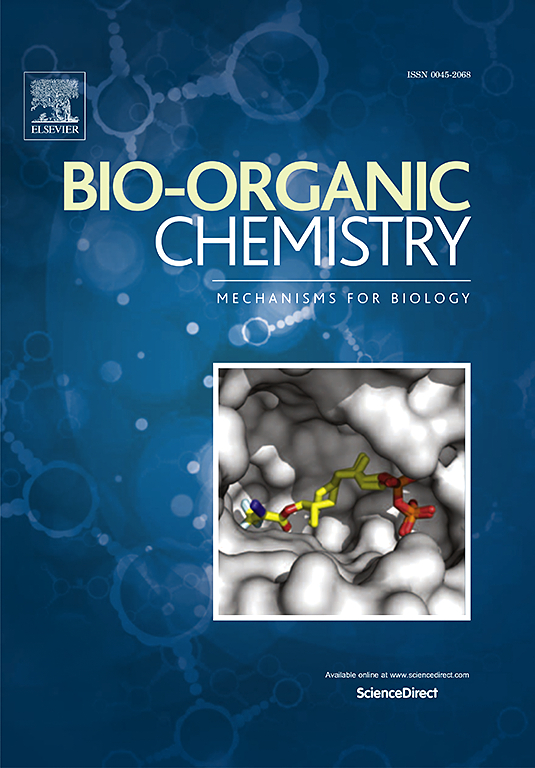Novel (−)-eigallocatechin-3-gallate-erlotinib conjugates via triazole rings inhibit non-small cell lung cancer cells through EGFR signaling pathway
IF 4.5
2区 医学
Q1 BIOCHEMISTRY & MOLECULAR BIOLOGY
引用次数: 0
Abstract
EGFR is frequently overexpressed in non-small cell lung cancer, and EGFR plays a crucial role in the occurrence and progression of malignant tumors. Currently, drug resistance often develops following treatment with EGFR tyrosine kinase inhibitors, such as erlotinib and gefitinib. Therefore, It is essential to investigate new compounds that can effectively target EGFR overexpression. The polyphenols epigallocatechin-3-gallate (EGCG), found in tea, have demonstrated anti-cancer properties. In this study, we linked EGCG and erlotinib through a click reaction using polyglycol to form an EGCG-erlotinib conjugated compounds (EGCG-Erls). We then explored its biological activity through various experiments. The results indicated that the compound 10 exhibited a superior inhibitory effect on NCI-H1975 cells, reduced their cloning and migratory capabilities, promoted cell apoptosis, and inhibited cell cycle progression. Furthermore, it was observed that compound 10 can bind to the EGFR protein and effectively inhibit the expression of phosphorylated EGFR (p-EGFR) and its downstream signaling proteins. Overall, the study suggests that compound 10 may induce apoptosis and inhibit cell proliferation via the EGFR signaling pathway, providing a promising avenue for the development of new EGFR inhibitors.

求助全文
约1分钟内获得全文
求助全文
来源期刊

Bioorganic Chemistry
生物-生化与分子生物学
CiteScore
9.70
自引率
3.90%
发文量
679
审稿时长
31 days
期刊介绍:
Bioorganic Chemistry publishes research that addresses biological questions at the molecular level, using organic chemistry and principles of physical organic chemistry. The scope of the journal covers a range of topics at the organic chemistry-biology interface, including: enzyme catalysis, biotransformation and enzyme inhibition; nucleic acids chemistry; medicinal chemistry; natural product chemistry, natural product synthesis and natural product biosynthesis; antimicrobial agents; lipid and peptide chemistry; biophysical chemistry; biological probes; bio-orthogonal chemistry and biomimetic chemistry.
For manuscripts dealing with synthetic bioactive compounds, the Journal requires that the molecular target of the compounds described must be known, and must be demonstrated experimentally in the manuscript. For studies involving natural products, if the molecular target is unknown, some data beyond simple cell-based toxicity studies to provide insight into the mechanism of action is required. Studies supported by molecular docking are welcome, but must be supported by experimental data. The Journal does not consider manuscripts that are purely theoretical or computational in nature.
The Journal publishes regular articles, short communications and reviews. Reviews are normally invited by Editors or Editorial Board members. Authors of unsolicited reviews should first contact an Editor or Editorial Board member to determine whether the proposed article is within the scope of the Journal.
 求助内容:
求助内容: 应助结果提醒方式:
应助结果提醒方式:


